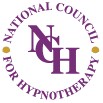Cognitive Hypnotherapy
Many people have misconceptions about hypnotherapy. It's one of the most rigorously validated therapies available. Increasing numbers of people in the scientific and medical establishment are recognising its benefits. Within a few sessions or even a few hours, it can bring about lasting psychological and physical changes. It's a safe, painless method of dealing with a huge range of problems without drugs or unwelcome side effects.
Popular TV and movie representations of hypnotism are very misleading. With Cognitive Hypnotherapy you'll encounter no swinging watches or 'look into my eyes' weirdness, and you can forget about gimmicky stage stunts involving people dancing like chickens. There's no flaky mysticism and absolutely no loss of control on your part.
Trance is a natural state that we as humans experience every day. Have you ever 'zoned out' while driving so that by the time you reach your destination you can't really remember how you got there? Have you lost an hour or two with your head in an absorbing book? Or have you gone off into your own daydreams while at a boring meeting? These are all examples of what it feels like to be hypnotised. You will be in full control throughout each therapy session and simply experience a pleasant sense of relaxation and calm.
The Cognitive Hypnotherapy model of practice is right at the leading edge of the latest knowledge in the field. In the simplest possible terms, it’s a synthesis of hypnotherapy with other forms of psychotherapy and with the distillation of contemporary scientific findings.
Inspired and developed over the past two decades by one of the world's pre-eminent theorists and practitioners, Trevor Silvester of the Quest Institute, Cambridge, UK, Cognitive Hypnotherapy is an integrative, non-dogmatic methodology that’s both problem- and solution-focused and draws upon a broad spectrum of practical and theoretical disciplines, both across the spectrum of ‘talking therapies’ and in the ‘hard’ sciences. It utilises an active client/therapist relationship in which the practitioner acts as a skilled guide to facilitate firstly the client’s discovery of the causes underlying her/his problems and subsequently the retuning of her/his unconscious mind so that the problem is reduced or dispelled.
It not only brings together a diverse range of techniques from many psychotherapy models but also assimilates, on a continually reviewed and updated basis, discoveries and concepts from the cutting edge of research into how the mind works, taking on board material uncovered in scientific fields such as neurology, neurophysiology, neurobiology, neuroendocrinology, molecular genetics, evolutionary psychology, behavioural psychology, cognitive psychology, positive psychology and psycholinguistics.
The approach of Cognitive Hypnotherapy is for the therapist to engage the unique mindset of the individual client to work through any presenting issue. Some hypnotherapists read from the same script for all their clients in the hope that lasting changes will be made. Working within the Cognitive therapy discipline, the language I use is determined by your specific model of the world – how you see and experience things in ways that are particular to you.
You are a unique individual with capabilities and behaviours unlike anyone else's. As a Cognitive Hypnotherapist I take the greatest care to recognise and respect this.



